 Synopsis:
Synopsis:
She tried to run, but she can’t escape the other Mrs. . . .
Sadie and Will Foust have just moved their family from bustling Chicago to a small town in Maine. Their neighbor, Morgan Baines, is found dead in her home and the murder rocks the tiny coastal island. No one is more shaken than Sadie. She’s terrified by the prospect of a killer lurking in their own backyard.
More than Morgan’s death has Sadie on edge. She and her family have taken up residence in the eerie old family home. The decor is decrepit, and the creepy attic was the scene of a horrific tragedy. Will now has custody of his troubled teenage niece, Imogen, who is living with them. They inherited the house following his sister’s death and Imogen is a dark, brooding, and threatening presence. The family’s troubling past looms a they strive for the fresh start they urgently need.
Sadie is drawn deeper into the mystery of Morgan’s death. and suspicion is increasingly focused on the new family in town.
The more Sadie discovers about Morgan Baines, the more she realizes just how much she has to lose if the truth ever comes to light.
Review:

Bestselling author Mary Kubica says that one of the things she loves about writing is “getting deep into the heads of my characters, exploring their motives and understanding how their past experiences shape their actions in the present.” She demonstrated a talent for doing just that in her previous novels, The Good Girl, Pretty Baby, Don’t You Cry, Every Last Lie, and When the Lights Go Out. In The Other Mrs. she ramps up the dramatic tension with an intense examination of Sadie Foust’s psyche.
Sadie, a physician, has moved from Chicago to an isolated little island along the rugged Maine coastline with her husband Will, a handsome and charismatic college professor, fourteen-year-old son Otto, and Tate, who is just seven. In her first-person narration, Sadie reveals that she is still reeling from Will’s infidelity, as well as “what happened in Chicago — not just the affair alone, but all of it, everything — it was our chance to make a new beginning, a fresh start. Or so Will said.” About the latter, she is vague. But she is attempting to settle into a new routine in her position at a local clinic and adjust to life in the dreary home Will inherited from his sister, Alice, following her suicide. And then there’s Imogen, the goth teenager who is angry, resentful, and inspires fear in Sadie with her erratic behavior. Imogen’s presence exacerbates Sadie’s struggle to manage her anxiety and re-establish a relationship of trust with Will. She relates, “It’s been months now since the affair, and yet his hands are still like sandpaper when he touches me and, as he does, I can’t help but wonder where those hands have been before they were on me.”
How well we think we know those closest to us.
Kubica intersperses Sadie’s dialogue with a third-person narration of unfolding events, as well as the first-person dialogues of a little girl nicknamed Mouse who details the abuse to which she has been subjected, and another female voice, Camille. Camille claims to have been Sadie’s roommate before Sadie wed Will, and expounds on her love for Will, describing their extramarital affair. It is clear that she is still obsessed with Will. She bemoans her status as “the other woman” because “what the other woman gets is another woman’s table scraps, never the full meal. . . . The only thing there is for us is disdain, never sympathy. No one feels sorry for us. Instead they judge. We’re written off as selfish, scheming, shrewd, when all we’re guilty of is falling in love. People forget we’re human, that we have feelings too.” She describes some of her sessions with a psychiatrist who encouraged her to discontinue their trysts. She is nearby, having “convinced” herself to follow Will to Maine and is living in an empty house near the Fousts. She acknowledges engaging in behavior that has frightened Sadie, jealous of the fact that Will loves Sadie more. Convinced that she is prettier than Sadie, Camille brags that “if I wanted to, I could do my hair like hers, I could dress like her, pass myself off as Mrs. Foust. Convince others to believe that I was Will’s wife, his chosen one. If I wanted to.” Her endgame isn’t clear.
Sadie finds her new job challenging and must also deal with Otto being bullied at school (again), as well as mysterious events at home. As the investigation into Morgan’s murder proceeds, disturbing evidence implicates Sadie. But she knows she is innocent and becomes desperate to prove her innocence.
Kubica says, “I love blurring the lines between victim and villain, and probing the dark corners of the mind.” As to The Other Mrs. specifically, she set out to “see how an isolated, almost claustrophobic, setting would compound an already stressful situation for Sadie and her family.” In Kubica’s capable hands, the book’s setting is critical to the story’s success and serves as another character in the book — ominous, foreboding, and stifling. The tale of deception is replete with shocking plot developments and twists that keep the action moving forward at an unrelenting pace, aided by the alternating narrations. As always, Kubica’s story is deftly plotted and flawlessly executed. In fact, it is not until the jaw-dropping conclusion reveals what has actually transpired — and it differs from at least one wholly unreliable narration — that Kubica’s ingenuity and creativity are fully appreciable. Her characters are richly and credibly developed and, at least in the case of Sadie, surprisingly sympathetic. Whether Sadie is a victim is a question readers may ponder long after finishing the book. Kubica’s original take on a story line device that fiction writers have employed frequently is spectacularly successful.
With each successive publication, Kubica’s writing has gotten better and it can be credibly argued that The Other Mrs. is her best book yet. Atmospheric, eerie, and compelling, The Other Mrs. examines family secrets, manipulation, and the lasting impact of traumatic events, and further cements Kubica’s reputation as a master writer of psychological thrillers.
Excerpt from The Other Mrs.
SADIE
There’s something off about the house. Something that nags at me, makes me feel uneasy, though I don’t know what it is about the house that makes me feel this way. On the surface, it’s perfectly idyllic, gray with a large covered porch, one that runs the full width of the house. It’s boxy and big, a foursquare farmhouse with windows aligned in rows, symmetrical in a way I find eye-pleasing. The street itself is charming, sloped and tree-covered, each house as lovely and well-kept as the next.
On the surface, there’s nothing about the house that’s not to like. But I know better than to take things at face value. It doesn’t help that the day, like the house, is gray. If the sun were out maybe I’d feel differently.
“That one,” I say to Will, pointing at it because it’s identical to the one in the picture that was given to Will from the executor of the estate. He’d flown in last week, to Portland, to take care of the official paperwork. Then he’d flown back, so we could drive here together. He hadn’t had time to see the house then.
Will pauses, bringing the car to rest in the street. He and I lean forward in our seats at exactly the same time, taking it in, as do the boys in the back seat. No one speaks, not at first, not until Tate blurts out that the house is gigantic—transposing his soft and his hard g’s as seven-year-olds have a tendency to do—and Will laughs, overjoyed that someone besides him can see the advantage of our move to Maine.
The house is not gigantic, not really, but in comparison to a 1,200-square-foot condo, it is, especially when it comes with its own yard. Tate has never had his own yard before.
Will gently steps on the gas, easing the car into the driveway. Once in Park, we climb out—some more quickly than others, though the dogs are the quickest of all—stretching our legs, grateful, if for nothing else, to be done with the long drive. The air outside is different than what I’m used to, infused with the scent of damp earth, salty ocean, and the woodsy terrain. It smells nothing like home. The street is quiet in a way I didn’t like. An eerie quiet, an unsettling quiet, and at once I’m reminded of the notion that there’s safety in numbers. That bad things are less likely to happen among crowds. There’s a misconception that rural living is better, safer than urban living, and yet it’s simply not true. Not when you take into account the disproportionate number of people living in cities, the inadequate healthcare system in rural parts.
I watch Will walk toward the porch steps, the dogs running along beside him, passing him up. He’s not reluctant like me. He struts as much as he walks, anxious to get inside and check things out. I feel resentful because of it, because I didn’t want to come.
At the base of the steps he hesitates, aware only then that I’m not coming. He turns toward me, standing still next to the car, and asks, “Everything alright?” I don’t answer because I’m not sure if everything is alright.
Tate goes dashing after Will, but fourteen-year-old Otto hovers like me, also reluctant. We’ve always been so much alike.
“Sadie,” Will says, modifying his question, asking this time, “Are you coming? It’s cold,” he says, a fact of which I was unaware because of my focus on other things, like how the trees around the house tower high enough to block the light. And how dangerously slick the steep street must be when it snows. A man stands up at the top of the hill, in his lawn with a rake in hand. He’s stopped raking and stands perched, watching me, I think. I raise a hand and wave, the neighborly thing to do. He doesn’t wave back. He turns away, goes back to raking. My gaze goes back to Will, who says nothing of the man. Surely he saw him as well as I did.
“Come on,” Will says instead. He turns and climbs the steps with Tate beside him. “Let’s go inside,” he decides. At the front door, Will reaches into his pocket and pulls out the house keys. He knocks first, but he doesn’t wait to be let in. As Will unlocks the door and pushes it open, Otto moves away from me, leaving me behind. I go too, only because I don’t want to be left alone outside.
Inside we discover that the house is old, with things like mahogany paneling, heavy drapery, tin ceilings, brown-and-forest-green walls. It smells musty. It’s dark, dreary.
We crowd together in the entryway and assess the home, a traditional floor plan with the closed-in rooms. The furnishings are formal and unwelcoming.
My attention gets lost on the curved legs of the dining room table. On the tarnished candelabra that sits on top of it. On the yellowing chair pads. I hardly see her standing at the top of the stairs. Were it not for the slightest bit of movement caught out of the corner of my eye, I might never have seen her. But there she stands, a morose figure dressed in black. Black jeans, a black shirt, bare feet. Her hair is black, long with bangs that slant sideways across her face. Her eyes are outlined in a thick slash of black eyeliner. Everything black, aside from the white lettering on her shirt, which reads, I want to die. The septum of her nose is pierced. Her skin, in contrast to everything else, is white, pallid, ghostlike. She’s thin.
Tate sees her too. At this, he moves from Will to me, hiding behind me, burrowing his face into my backside. It’s not like Tate to be scared. It’s not like me to be scared, and yet I’m well aware that the hairs on the nape of my neck now stand on end.
“Hello,” I say, my voice weak.
Will now sees her too. His eyes go to her, he says her name. He starts climbing the steps to her, and they creak under his feet, protesting our arrival. “Imogen,” he says with arms wide, expecting, I think, that she’ll fold herself into them and let him hold her. But she doesn’t because she’s sixteen and standing before her is a man she hardly knows. I can’t fault her for this. And yet the brooding, melancholic girl was not what I’d imagined when we discovered we were given guardianship of a child.
Her voice is acidic when she speaks, quiet—she doesn’t ever raise her voice, she doesn’t need to. The muted tone is much more unsettling than if she screamed. “Stay the fuck away from me,” she says coolly.
She glowers down over the stair banister. My hands involuntarily move behind me and to Tate’s ears. Will stops where he is. He lowers his arms. Will has seen her before, just last week when he came and met with the executor of the estate. It was then that he signed the papers and took physical possession of her, though arrangements had been made for her to stay with a friend while Will, the boys and I drove here.
The girl asks, her voice angry, “Why’d you have to come?”
Will tries to tell her—the answer is easy, for were it not for us, she’d likely have entered the foster care system until she turned eighteen, unless she was granted emancipation, which seemed unlikely at her age—but an answer is not what she wants. She turns away from him, disappearing into one of the second story rooms where we hear her futzing angrily with things. Will makes a move to follow, but I say to him, “Give her time,” and he does.
This girl is not the same as the little girl Will had shown us in the photograph. A happy-go-lucky freckled brunette of about six years old. This girl is different, much changed. The years have not been kind to her. She comes with the house, just another thing that’s been left to us in the will, mixed in with the house and the heirlooms, what assets remain in the bank. She’s sixteen, nearly able to be on her own—a moot point that I tried arguing, for certainly she had a friend or some other acquaintance who could take her in until she turned eighteen—but Will said no. With Alice dead, we were all that remained, her only family, though she and I were meeting just now for the first time. She needs to be with family, Will told me at the time, days ago only though it feels like weeks. A family who will love and care for her. She’s all alone, Sadie. My maternal instinct had kicked in then, thinking of this orphaned child all alone in the world, with no one but us.
I hadn’t wanted to come. I’d argued that she should come to us. But there was so much more to consider, and so we came anyway, despite my reservations.
I wonder now, and not for the first time this week, what kind of disastrous effect this change will have on our family. It can’t possibly be the fresh start Will so auspiciously believes it to be.


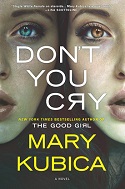
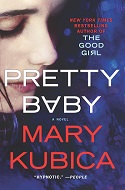
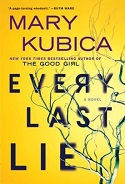
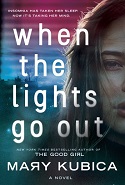
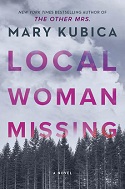



Comments are closed.